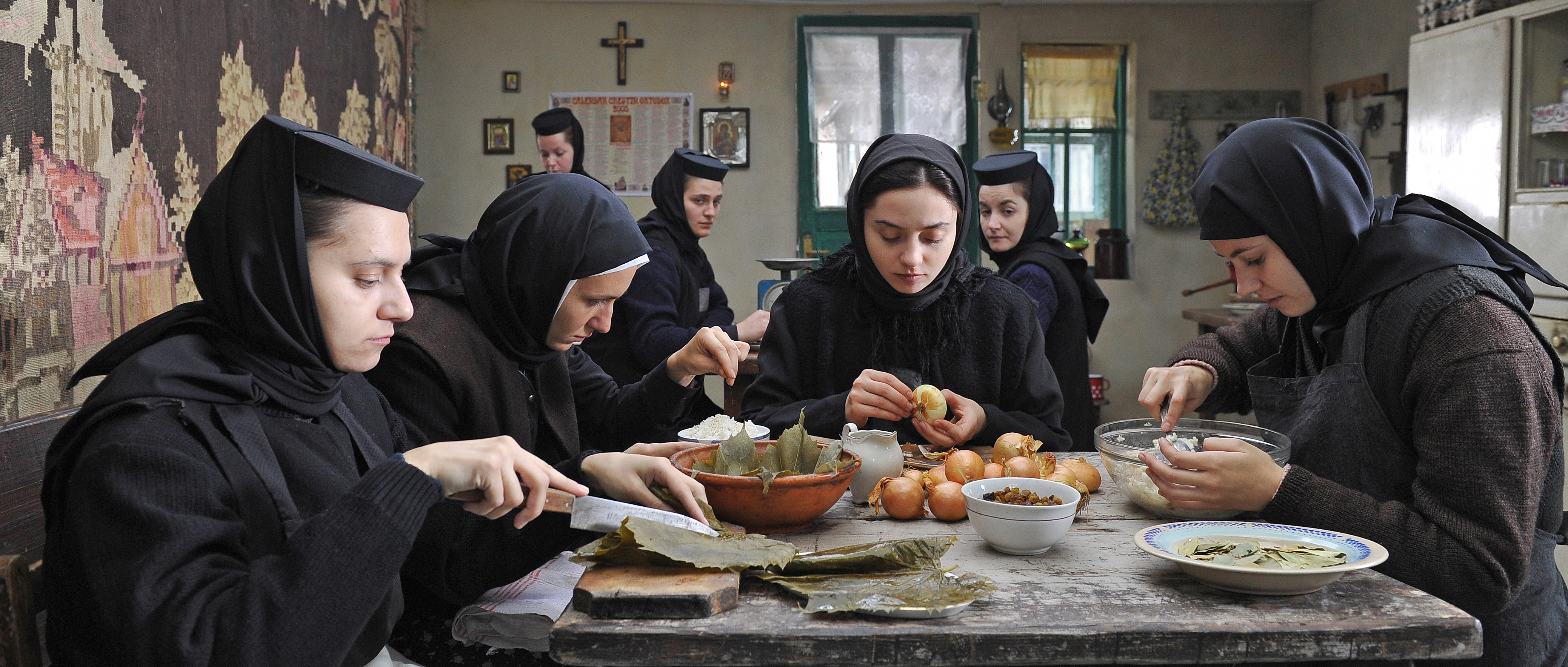“Beyond the Hills” plays with genres

By Tony Huang
March 6, 2013 12:01 a.m.
Cristian Mungiu’s Palme d’Or-winning second feature, “4 Months, 3 Weeks and 2 Days,” an intimate drama of two friends forced to seek extralegal abortion under Communist rule, played better as a thriller than a message movie. The same curious quality informs Mungiu’s follow-up, “Beyond the Hills,” a gripping depiction of a remote Romanian monastery that similarly falls short of making a statement.
When Alina (Cristina Flutur) loses her job in Germany, she returns to Romania to visit her old friend – and former lesbian lover from the orphanage she grew up in – Voichita (Cosmina Stratan), who has found refuge living as a nun for the past few years. The situation quickly escalates as the extent of Alina’s obsession with Voichita is revealed, the film transitioning into a medieval medical tale with perverse fluidity. As the film reaches its close, it resembles more closely an exorcism movie than a relationship drama.
Like Mungiu’s breakthrough film, the plot itself is absorbing, if unnecessarily detailed; however, the thematic overtones of his newest movie are buried so deep that the surface thrills overwhelm the film – its perverse dealings with genre are not enough to push it past mild interest.
To its credit, “Beyond the Hills” doesn’t go exactly as expected. Films about religion tend to err on the side of skepticism – even Luis Buñuel, master of making fun of Catholics, threw a few low blows.
Thankfully, even though it’s clear that Mungiu comes from the perspective of a skeptic, the film goes out of its way to run those fears to the ground. When the priest that mans the monastery is introduced by Voichita as “papa,” Alina’s senses understandably prick up, but it turns out merely to be a substitute for “father.” In a delightfully humorous twist, one of the nuns sincerely comments that she hopes Alina has not succumbed to a cult, disarming the assumptions that the setting of the isolated mountain community encourages.
Much of the tension derives from the same places as the humor – the mutually exclusive minds of those within faith and those without. In a dinner scene where Alina has just implored Voichita to go to work in Germany together, the table is rife with people who aren’t thinking of the same things.
The lesbian context of the two friends has only started burrowing, while the priest chatters away about plans for supplies and renovations. In what’s becoming one of Mungiu’s trademark effects – a similar scene was staged in “4 Months, 3 weeks and 2 days” – the hidden realities that eventually escalate the film are already at full force.
What follows is an excruciatingly detailed portrayal of Alina’s fall into madness – seen as the work of the devil. The ingenuity of the film is that Alina’s single-minded devotion to Voichita could plausibly be read that way – Alina’s actions grow from desperate to frustratingly desperate to dangerous, completely on the edge of reasonability, creating an interesting parallel of faith that perversely paints Voichita as the devil itself. This precarious realism which really borders on abstraction – lures the viewer to an ending so fatally tragic that it would feel cheap if it weren’t so involving.
In fact, the film has so much going on that it’s more novelistic than cinematic. While the images are cleanly cut and composed, rarely do the images further the story. Thus the plot speaks for itself, and sometimes badly; the nuns other than Voichita are woefully underdeveloped, and Voichita is simply not interesting enough for the movie to focus on after Alina goes mad.
But Mungiu pulls a neat trick at the end when a police procedural invades the exorcism tale, and a slow zoom announces his manipulation of the screen. There is a world other than the monastery, but it’s not until this moment that its inhabitants start to acknowledge its existence. Ever wonder how that happens? “Here’s how,” he seems to say, but just a little too late.


